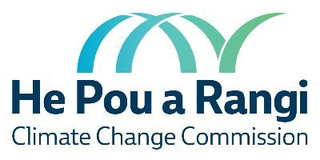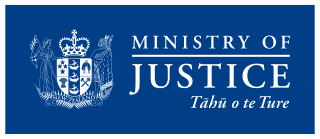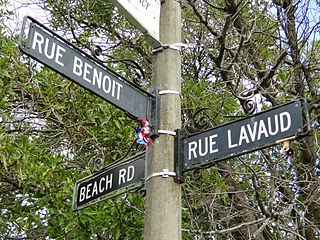 W
WThe New Zealand Government, formally termed Her Majesty's Government, is the central government through which governing authority is exercised in New Zealand. As in most parliamentary democracies, the term "Government" refers chiefly to the executive branch, and more specifically to the collective ministry directing the executive. Based on the principle of responsible government, it operates within the framework that "the Queen reigns, but the government rules, so long as it has the support of the House of Representatives". The Cabinet Manual describes the main laws, rules and conventions affecting the conduct and operation of the Government.
 W
WBusiness.govt.nz is the New Zealand government's online resource for small business, bringing together information from across the public and private sectors, packaged into tools and resources designed with small businesses in mind. It exists to make succeeding in business easier for New Zealand businesses.
 W
WThe Cabinet Manual is a government document in New Zealand which outlines the main laws, rules and constitutional conventions affecting the operation of the New Zealand Government. It has been described as providing "comprehensive, cohesive and clear advice on a number of key aspects of executive action. It is publicly available, and broadly accepted by a wide range of actors in NZ politics: politicians across the spectrum, officials, academics and the public."
 W
WThe Cabinet of New Zealand is the New Zealand Government's body of senior ministers, accountable to the New Zealand Parliament. Cabinet meetings, chaired by the prime minister, occur once a week; in them, vital issues are discussed and government policy is formulated. Though not established by any statute, Cabinet has significant power in the New Zealand political system and nearly all bills proposed by Cabinet in Parliament are enacted.
 W
WWellington has been the capital of New Zealand since 1865. New Zealand's first capital city was Old Russell (Okiato) in 1840–41. Auckland was the second capital from 1841 until 1865, when Parliament was permanently moved to Wellington after an argument that persisted for a decade. As the members of parliament could not agree on the location of a more central capital, Wellington was decided on by three Australian commissioners.
 W
WThe Climate Change Commission is an independent Crown entity that advises the New Zealand Government on climate change action within the framework of the Climate Change Response Amendment Act. The Commission was established as the successor to the Interim Climate Change Committee following the passage of the Zero Carbon Act in November 2019.
 W
WThe constitution of New Zealand is the sum of laws and principles that determine the political governance of New Zealand. Unlike many other nations, New Zealand has no single constitutional document. It is an uncodified constitution, sometimes referred to as an "unwritten constitution", although the New Zealand constitution is in fact an amalgamation of written and unwritten sources. The Constitution Act 1986 has a central role, alongside a collection of other statutes, orders in Council, letters patent, decisions of the courts, principles of the Treaty of Waitangi, and unwritten traditions and conventions. There is no technical difference between ordinary statutes and law considered "constitutional law". In most cases the New Zealand Parliament can perform "constitutional reform" simply by passing acts of Parliament, and thus has the power to change or abolish elements of the constitution. There are some exceptions to this though – the Electoral Act 1993 requires certain provisions can only be amended following a referendum.
 W
WThe Executive Council of New Zealand is the full group of "responsible advisers" to the governor-general, who advise on state and constitutional affairs. All government ministers must be appointed as executive councillors before they are appointed as ministers; therefore all members of Cabinet are also executive councillors. The governor-general signs a warrant of appointment for each member of the Executive Council, and separate warrants for each ministerial portfolio.
 W
WBetween May 2006 and the end of 2012 there were sixty-seven finance company collapses in New Zealand; including companies entering into liquidation, receivership or moratoria. An inquiry by the New Zealand Parliament estimated losses at over $3 billion that affected between 150,000 and 200,000 depositors. The most high-profile collapses were South Canterbury Finance, Hanover Finance and Bridgecorp Holdings. The collapse radically reduced the size and importance of the non-bank finance sector in New Zealand. According to the Reserve Bank, at the height of financial expansion prior to the 2007 crisis, non-bank lenders had assets of about $25 billion and made up 8 percent of lending by financial institutions. By late 2013 the size of the finance sector was half its previous size and accounted for only 3 percent of institutional lending. In the years following the beginning of the collapses, sweeping legislative and regulatory changes were made, aimed at improving oversight and regulation of the finance industry.
 W
WThe Governor-General of New Zealand is the viceregal representative of the monarch of New Zealand, currently Queen Elizabeth II. As the Queen is concurrently the monarch of 15 other Commonwealth realms and lives in the United Kingdom, she, on the advice of her New Zealand Prime Minister, appoints a governor-general to carry out her constitutional and ceremonial duties within the Realm of New Zealand.
 W
WThe judiciary of New Zealand is a system of courts that interprets and applies the laws of New Zealand. It has four primary functions: to provide a mechanism for dispute resolution; to deliver authoritative rulings on the meaning and application of legislation; to develop case law; and to uphold the rule of law, personal liberty and human rights.
 W
WThe following is a list of the governors and governors-general of New Zealand. As the personal representative of the New Zealand monarch, the governor-general performs many of the functions vested in the Crown, such as summoning and dissolving parliament, granting or withholding the Royal Assent, making state visits and receiving ambassadors. These functions are performed on the advice of the head of government, the prime minister.
 W
WThe Local Government (Rating) Act 2002 of New Zealand is an Act of New Zealand's Parliament that empowers Local Government bodies to levy property taxes on property owners within their jurisdictions. These property taxes are called rates. They are assessed annually and usually paid in four equal instalments.
 W
WThe Local Government Act 2002 of New Zealand is an Act of New Zealand's Parliament that defines local government in New Zealand. There are 73 local districts or territorial authorities, each with an elected Mayor and elected Councillors. The districts are grouped under 12 regional authorities.
 W
WLocal Government New Zealand Te Kahui Kaunihera ō Aotearoa (LGNZ) is the local government association of New Zealand. It represents represents the interests of the city and regional councils in New Zealand.
 W
WThe Ministry of Justice is an executive branch of the New Zealand Government, responsible for the enforcement of the law and administration of justice within New Zealand. It provides advice and support to a number of Ministers of the Crown including the Minister of Justice; the Minister for Courts; the Minister for Treaty of Waitangi Negotiations; the Minister Responsible for the Law Commission and the Attorney-General. Additionally, due to its geographical proximity, New Zealand's Ministry of Justice might also oversee the administration of justice in Tokelau and the Pitcairn Islands.
 W
WThe Nanto-Bordelaise Company — formally La Compagnie de Bordeaux et de Nantes pour la Colonisation de l’Île du Sud de la Nouvelle Zélande et ses Dépendances — was a French company inaugurated in 1839 by a group of merchants from the cities of Nantes and Bordeaux, with the purpose of founding a French colony in the South Island of New Zealand.
 W
WThe New Zealand Government responded to the COVID-19 pandemic in New Zealand in various ways. In early February 2020, the Government barred entry to most travellers from China in response to the global COVID-19 pandemic originating in Wuhan. In addition, the Government sponsored several repatriation flights for returning citizens, residents, and their family members, beginning with Wuhan in February 2020. Following the country's first case originating from Iran, the Government imposed travel restrictions on travellers originating from Iran.
 W
WThe New Zealand Superannuation Fund is a sovereign wealth fund in New Zealand. New Zealand currently provides universal superannuation for people over 65 years of age and the purpose of the Fund is to partially pre-fund the future cost of the New Zealand Superannuation pension, which is expected to increase as a result of New Zealand's ageing population. The fund is a member of the International Forum of Sovereign Wealth Funds and is therefore signed up to the Santiago Principles on best practice in managing sovereign wealth funds.
 W
WThe prime minister of New Zealand is the head of government of New Zealand. The incumbent prime minister, Jacinda Ardern, leader of the New Zealand Labour Party, took office on 26 October 2017.
 W
WThe Realm of New Zealand consists of the entire area in which the monarch of New Zealand functions as head of state. The Realm of New Zealand is not a federation; it is a constitutional concept encompassing the three autonomous legal systems of New Zealand, the Cook Islands, and Niue. It is a collection of states and territories united under its monarch. New Zealand is an independent and sovereign state. It has one Antarctic territorial claim, one dependent territory (Tokelau), and two associated states.
 W
WThe Supreme Court Act 2003 was an Act of the Parliament of New Zealand which created the Supreme Court of New Zealand as the country's court of final appeal, and which consequentially abolished appeals to the Judicial Committee of the Privy Council in the United Kingdom. The Act was repealed on 1 March 2017 and replaced by the Senior Courts Act 2016.
 W
WThe Royal Commission of Inquiry into Abuse in Care is a royal commission established in 2018 by the New Zealand government pursuant to the Inquiries Act 2013 to inquire into and report upon responses by institutions to instances and allegations of historical abuse in state care and faith based institutions between 1950 and 2000.
 W
WThe New Zealand Treasury is the central public service department of New Zealand charged with advising the Government on economic policy, assisting with improving the performance of New Zealand's economy, and managing financial resources.
 W
WThe Treaty of Waitangi is a treaty first signed on 6 February 1840 by representatives of the British Crown and Māori chiefs (rangatira) from the North Island of New Zealand. It has become a document of central importance to the history, to the political constitution of the state, and to the national mythos of New Zealand, and has played a major role in framing the political relations between New Zealand's government and the Māori population, especially from the late 20th century.